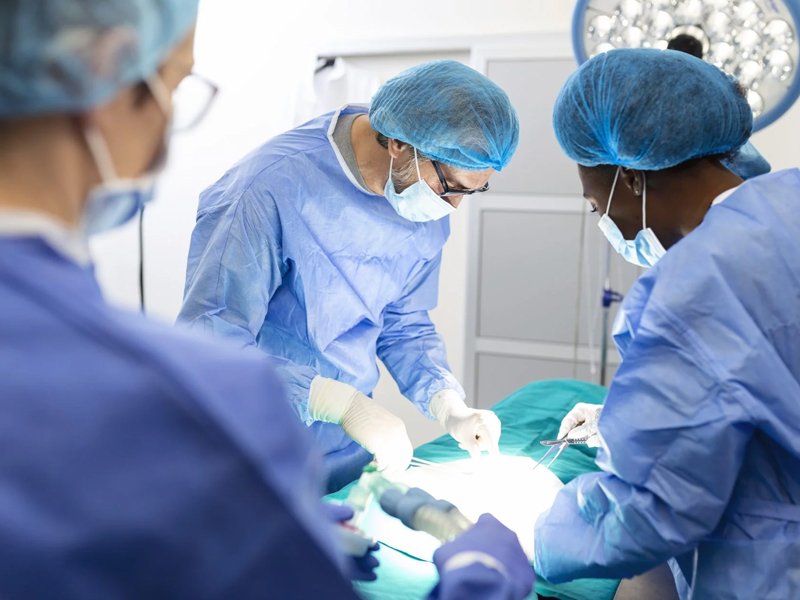-
 24X7 Emergency Services +91 95998 05080
24X7 Emergency Services +91 95998 05080 -
email us info@llmc.in
-
address Khichripur, Delhi 110091
- Life Line
- Gastrointestinal Surgery
Gastrointestinal Surgery

Gastrointestinal Surgery
Gastrointestinal surgery is a treatment for diseases of the parts of the body involved in digestion. This includes the esophagus (ee-sof-uh-gus), stomach, small intestine, large intestine, and rectum. It also includes the liver, gallbladder, and pancreas. Surgery may be used to remove a cancerous or noncancerous growth or damaged part of the body, such as the intestine. It may also be used to repair a problem like a hernia (a hole or weak spot in the wall of the abdomen). Minor surgical procedures are used to screen and diagnose problems of the digestive system.
A surgical procedure called an endoscopy is used to screen and diagnose problems of the digestive system. The doctor puts a long, thin tube with a tiny camera into the body to see inside. If the problem is with the stomach or esophagus, the doctor puts the scope through the esophagus. To check for colon cancer or other problems of the intestines, the doctor puts the scope through the anus into the intestine.


What are the risks and/or side effects?
Any surgery comes with some risks, including:
- Infection. Anytime the body is opened up, infections can get in. Surgeons are very careful about keeping things sterile and clean during surgery, but there is always a chance of infection.
- Pain. Depending on the surgery, there may be soreness and pain during recovery.
- Bleeding and blood clots. Sometimes cuts from surgery continue to bleed, which can make recovery take longer. Sometimes the body forms a blood clot where the surgery was done, and the clot blocks an important blood vessel to the lungs, heart, or brain.
- Damage to another body part. A healthy body part can be accidentally damaged during surgery.
- Reaction to anesthesia. Some people don’t react well to anesthesia and may have nausea and vomiting.
What are the benefits?
Surgery to remove a tumor or diseased body part, or repair damage, can be lifesaving. Surgery can also improve the quality of life for someone who has not benefited from other treatments, like medicine or diet changes. Colonoscopy is a minor surgical procedure with big benefits: it can catch colon cancer early enough to cure it. It’s important to get the recommended colon cancer screening.
Book Your Free Appointment

